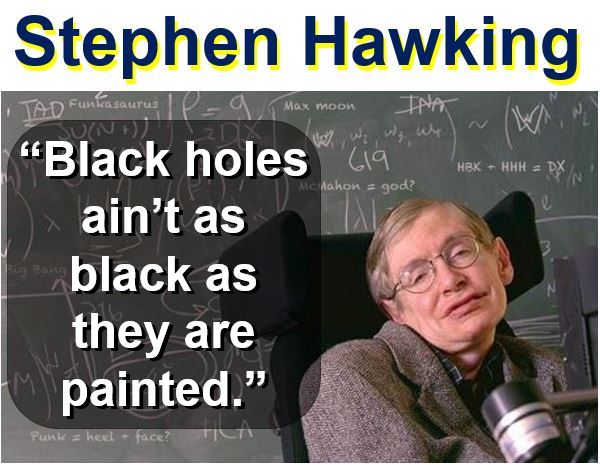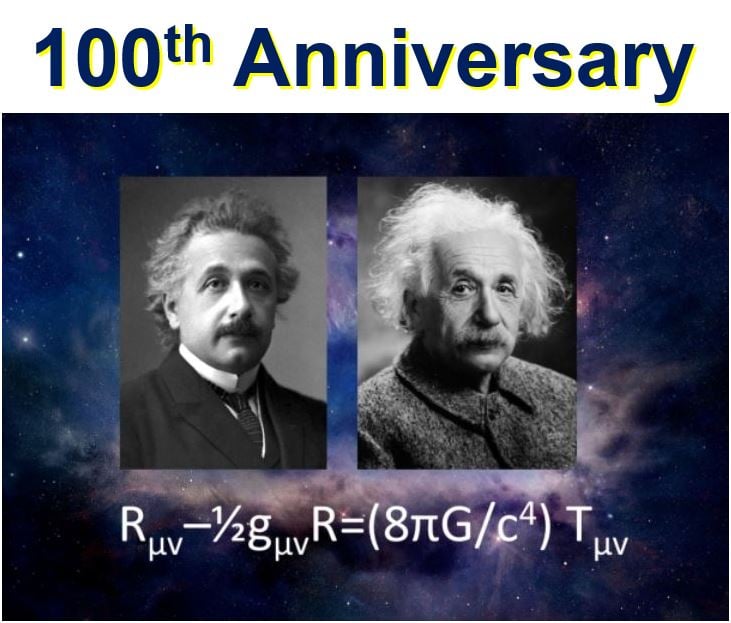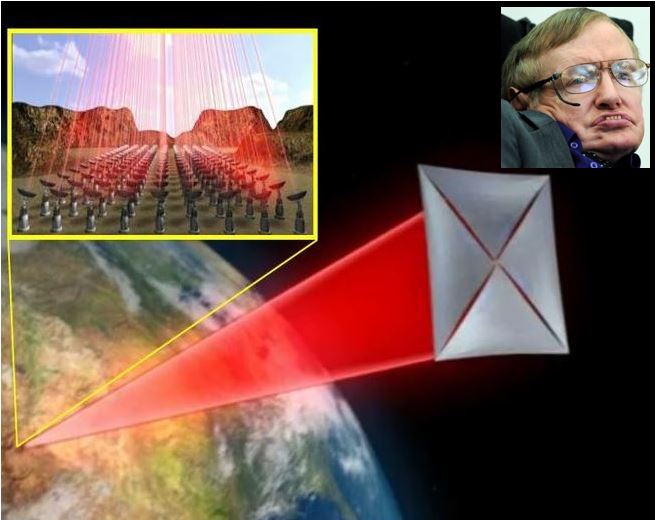Black holes may be portals to other universes, says world famous theoretical cosmologist and physicist Professor Stephen Hawking, and not simply an ‘eternal prison’ from which anything that is caught by their colossal gravity has no chance of escape – there could be a ‘way out’.
The multiverse (meta-universe) is a hypothetical set of possible universes – infinite and finite – including our own Universe; the one in which we live. Together, all these universes comprise everything that exists – the entirety of energy, matter, space, time, and the physical laws and constants that describe them.
The different universes contained within the multiverse are called other universes, alternate universes or parallel universes.
 Prof. Hawking believes that black holes could well be portals to other universes. If this is the case, could we travel through them without being squashed into a tiny dot?
Prof. Hawking believes that black holes could well be portals to other universes. If this is the case, could we travel through them without being squashed into a tiny dot?
Some people believe that there is a parallel universe – an alternative reality – which is a variant of our own Universe. In this parallel universe a replica for each person exists, things are eerily similar to our universe, but also slightly different.
Prof. Hawking suggested that black holes could be bridges or portals between universes, i.e. a black hole in our universe might be the route to another universe.
The term multiverse was coined in 1895 by the American philosopher and psychologist William James (in a different context).
Prof. Hawking, who is Director of research at the Centre for Theoretical Cosmology at the University of Cambridge in England, delivered a lecture on the history of black holes as well as recent breakthroughs, at the inauguration of Harvard’s Black Hole Initiative in Sanders Theatre on Monday, 18th April.
 Prof. Hawking tells us not to be scared of black holes. They could have a wealth of information within them. (Image: hawking.org.uk)
Prof. Hawking tells us not to be scared of black holes. They could have a wealth of information within them. (Image: hawking.org.uk)
Recent breakthroughs in black hole research
During his talk, which was interspersed with several jokes, Prof. Hawking discussed the implications of recent developments that demonstrated that the size of a black hole might indicate how much information it holds, and that they may also emit thermal radiation.
He said the return of information from a black hole might be a bit like trying to recover data contained within a burned encyclopaedia – the information would not be technically lost, but extremely hard to decipher. Put in other words, he does not believe black holes necessarily delete all the information they swallow.
Black holes vary in size considerably he explained – with some being as big as the distance from our Sun to Jupiter (778.5 million km or 484 million miles), while others are as small as a mountain here on Earth.
Regarding black holes and their scary reputation, Prof. Hawking said:
“The message of this lecture is that black holes ain’t as black as they are painted. So, if you feel you are in a black hole, don’t give up. There is a way out.”
100th anniversary of Theory of Relativity publication
As well as serving as the inauguration of Harvard’s Black Hole Initiative, an interdisciplinary program that specifically targets black hole research, Prof. Hawking also celebrated the 100th anniversary of the publication of the Theory of General Relativity by the German-born theoretical physicist Albert Einstein (1879-1955).
 Prof. Hawking’s lecture also celebrated 100 years since the publication of Einstein’s Theory of Relativity. His revolutionary equation, shown in the image above, says that the curvature of space-time is equal to the distribution of matter plus energy. (Image: mit.edu)
Prof. Hawking’s lecture also celebrated 100 years since the publication of Einstein’s Theory of Relativity. His revolutionary equation, shown in the image above, says that the curvature of space-time is equal to the distribution of matter plus energy. (Image: mit.edu)
According to American/Israeli theoretical physicist Abraham (Avi) Loeb, the Frank B. Baird Jr. Professor of Science at Harvard University, Chair of the Harvard Astronomy department, and Director of Harvard’s Black Hole Initiative, who introduced Prof. Hawking at the event, the Black Hole Initiative will bring him together with five other eminent scientists, including History of Science professor Peter L. Galison, Astronomy lecturer Sheperd S. Doeleman, Physics professor Andrew Strominger, and natural sciences professor Ramesh Narayan.
Prof. Loeb said the Black Hole Initiative’s uniqueness ultimately drew Prof. Hawking to deliver the inaugural lecture.
Regarding the aim of the Black Hole Initiative, Prof. Loeb said:
“The goal is to bring these people together that otherwise do not meet very often and to cultivate a sort of culture of people interested in black holes.”
“It’s the only center worldwide that is focused on research on black holes and because of that, Stephen Hawking made it a special priority to come here.”
 Earlier this month, Prof. Hawking said he was supporting a project to send tiny spacecraft (nanocraft) to another star system. The journey would be done within one generation. These chip-sized starships will travel trillions of kilometres – considerably further than anything we have launched into deep space so far. (Image: Adapted from Breakthrough Starshot Video)
Earlier this month, Prof. Hawking said he was supporting a project to send tiny spacecraft (nanocraft) to another star system. The journey would be done within one generation. These chip-sized starships will travel trillions of kilometres – considerably further than anything we have launched into deep space so far. (Image: Adapted from Breakthrough Starshot Video)
Black Hole Initiative funding expected soon
According to Prof. Loeb, space has already been allocated on 20 Garden Street for the Black Hole Initiative. However, he is still waiting for the funding application to be approved, which should occur within the next few weeks.
Once the application has been approved, Prof. Loeb hopes the initiative will host student programmes that will give graduates and undergraduates the chance to take part in workshops and contribute to black hole research.
Andrew W. Mayo ’17, a Physics and Astrophysics concentrator, praised Prof. Hawking for his dynamic presentation:
“There are not a lot of lecturers who are able to keep the audience engaged. This was one of those lectures that was able to do that.”
Video – Black holes portals to another universe
Stephen Hawking explains that black holes may not be the ‘eternal prisons’ we believe they are – there may be a way out, which takes us to another universe.

